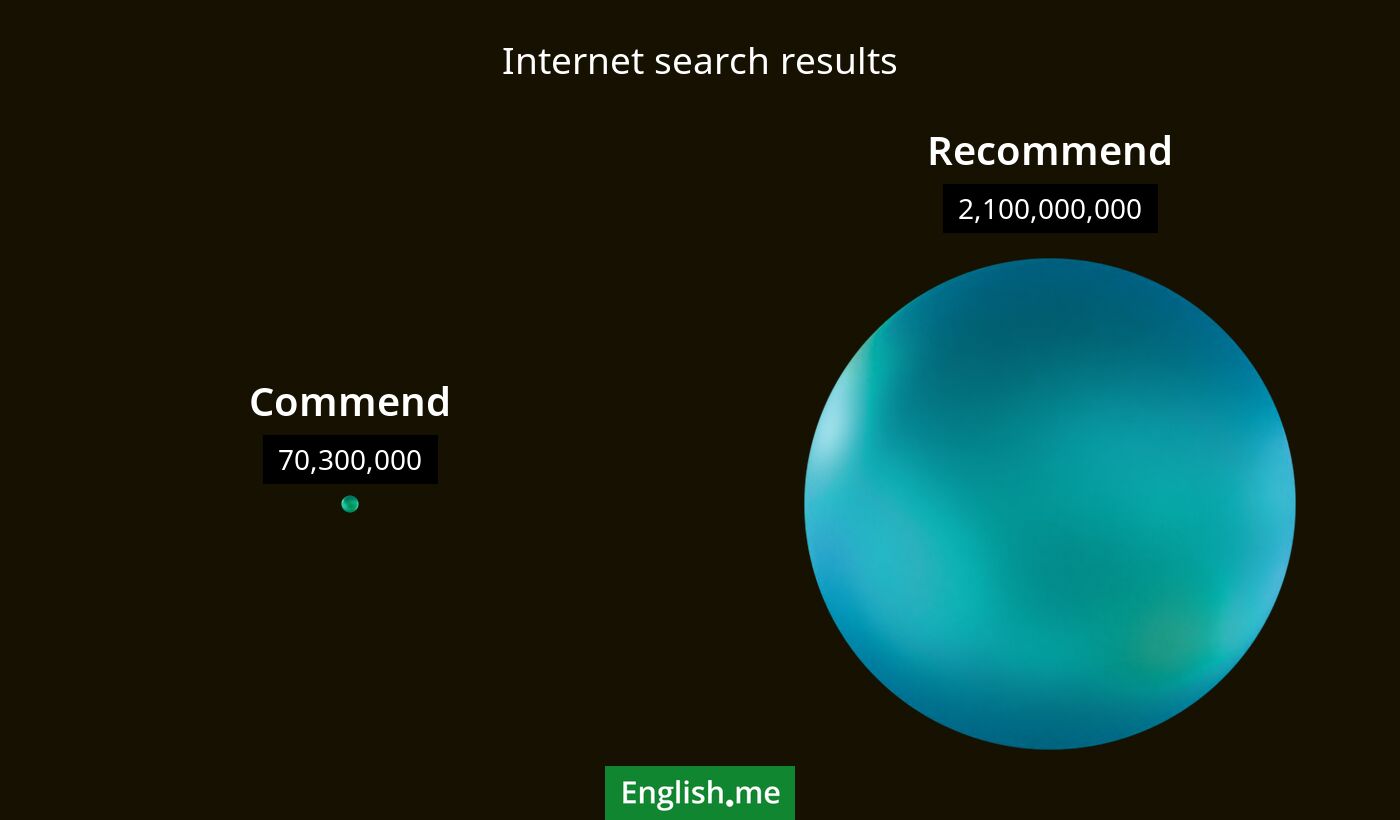"Commend" vs. "recommend": more than just a letter apart
Reviewed and edited by  Anwar Kareem 10/05/2025, 20:10
Anwar Kareem 10/05/2025, 20:10
English.me team member

 What is similar?
What is similar?
Both words are verbs and relate to expressing approval or positive judgment about someone or something. They share a root meaning connected to praise or endorsement.
 What is different?
What is different?
Commend generally means to formally praise or present someone or something as worthy, often in an official or ceremonial context. Recommend means to suggest someone or something as suitable for a particular purpose or to advise someone to do something. Recommend has a stronger sense of giving advice, while commend focuses on expressing approval.
 Which one is more common?
Which one is more common?

 Examples of usage
Examples of usage
Commend- She was commended for her bravery during the rescue.
- The teacher commended the student for his diligence.
- I would like to commend your hard work on this project.
- Can you recommend a good restaurant nearby?
- The doctor recommended taking a short walk each day.
- I highly recommend this book to anyone who loves mysteries.

 English
English español
español française
française italiano
italiano deutsche
deutsche 日本語
日本語 polski
polski česky
česky svenska
svenska Türkçe
Türkçe Nederlands
Nederlands